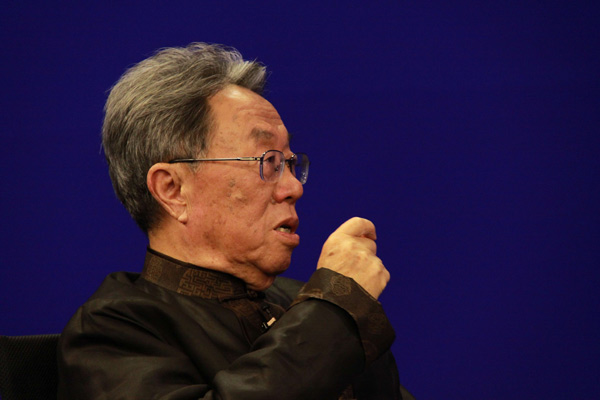RESOURCES
|
Date:2018-09-10 Source: china culture |
|
Four books by author Wang Meng about ancient Chinese philosophy. [Photo provided to China Daily] |
A new series of books introduces ancient philosophers to young readers around the world, Yang Yang reports.
About three years ago, after the CEO of Xiron Books, Shen Haobo, and his team had published many works by Wang Meng about ancient Chinese philosophy from Confucius and Mencius to Lao Tzu and Chuang Tzu-they decided to publish a series of books on ancient Chinese thinkers targeted at young people, not just in China but around the world.
Wang Meng was born in 1934 and has written more than 60 books since 1955. He served as China's minister of culture from 1986 to 1989.
"We thought it would be great if we could introduce writers like Wang Meng and their understanding of ancient Chinese thought not only to young Chinese people, but also to young people around the world," says Shen.
"So the wisdom of the ancient Chinese philosophers could provide a reference point for young people today to look at the problems they encounter in their life, work and study," he says.
The four books-Brief Wisdom of the Analects, Brief Wisdom of Lao Tzu, Brief Wisdom of Chuang Tzu, and Brief Wisdom of Mencius-will be published in Chinese in October.
And the plan is to hire 15 Sinologists to work on translating them, and publish the series in 33 countries around the world, he says.
"The key characteristic of this series is that it is easy to understand and useful," he says.

|
|
Chinese writer Wang Meng speaks about his new series of books on ancient Chinese wisdom. [Photo provided to China Daily] |
Speaking about his books, Wang Meng says that it was never the aim of the ancient Chinese philosophers to have their words turned into academic works.
"Their aim was to make people understand their ideas-not only kings, officials and students-but also children, so that people all over the world could live according to the same value system to achieve peace and prosperity," he says.
"You can't teach children with complicated expressions. So Chinese classics naturally tried to express the most profound thoughts using the simplest words."
Wang gives an example of one of the most famous quotations from Confucius: "Do not do to others what you would not have them do to you".
"It's one of the main characteristics of Chinese people and Chinese culture," he says.
Another example is a quotation from Lao Tzu: "Real intellectuals do not think they know everything".
"Lao Tzu tried to encourage people to learn all through their life, and he was quick to criticize laziness. This is also a characteristic of Chinese culture, and is also a common opinion shared by people all around the world," Wang says.
"With this new series of books, more people from overseas will understand Chinese culture, and will become more willing to do so because they can easily understand the ideas in the books," he says.
Turkish Sinologist Giray Fidan, one of the translators of the books, says that people from different countries naturally prefer simpler things to complicated ones so that they can see the similarities between different peoples.
"Although we have different cultural backgrounds, languages and living environments, the problems we are confronted with are similar," he says, adding that "I am very glad that I got the chance to translate and introduce Chinese wisdom to Turkish readers".
In the West, many people have heard of Confucius, Mencius, Lao Tzu, and Chuang Tzu, but they lack a more profound understanding of them, says Eric Abrahamsen, a translator and publisher from the United States.
"There are already hundreds of English translations of Tao Te Ching, which means that people have an interest in them. But their numbers suggest that they have not caught the essence of the work. None of the translations are satisfactory and that's why more translations keep getting done," he says.
So, if Western readers can get a more profound and accurate understanding of ancient Chinese thought through the English translation of this series of books, it will be a very good thing, he says.